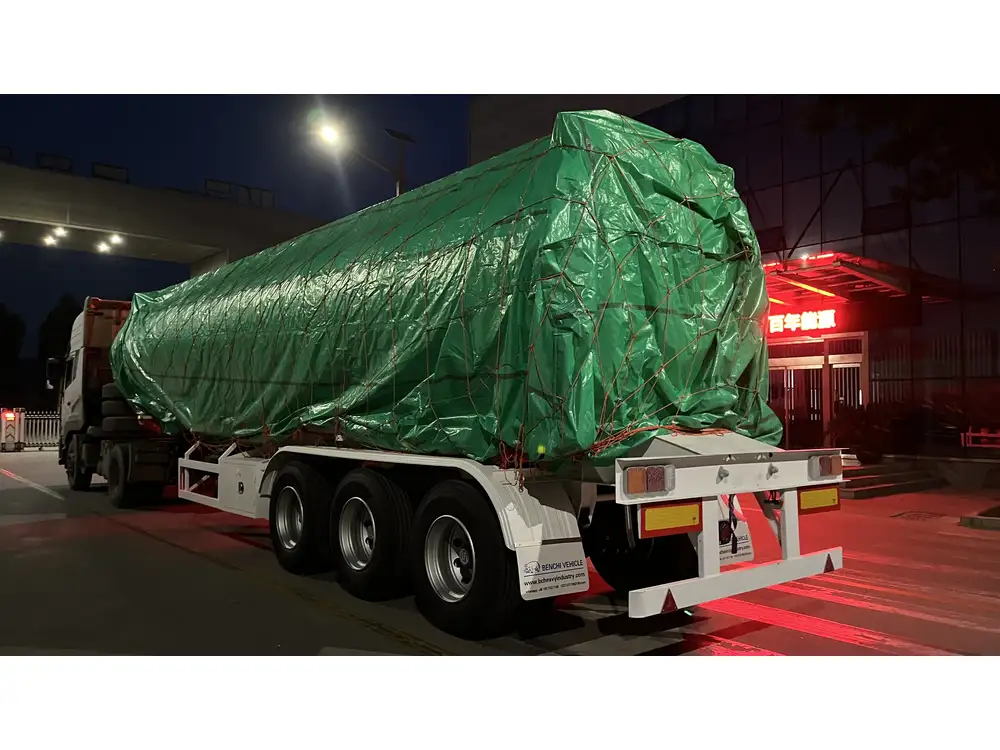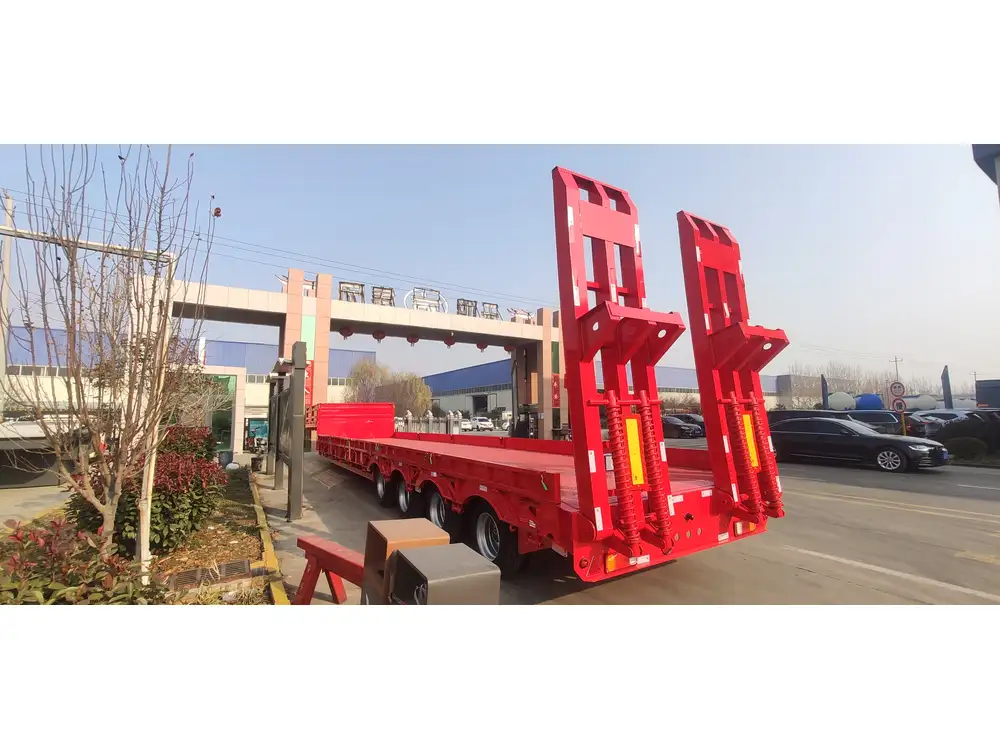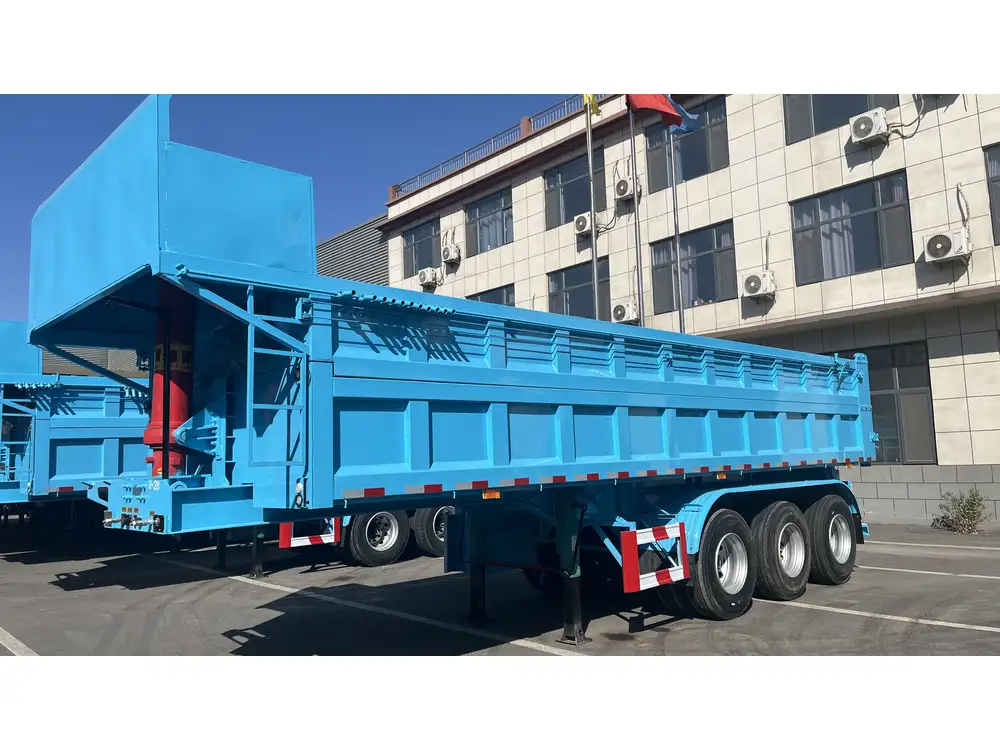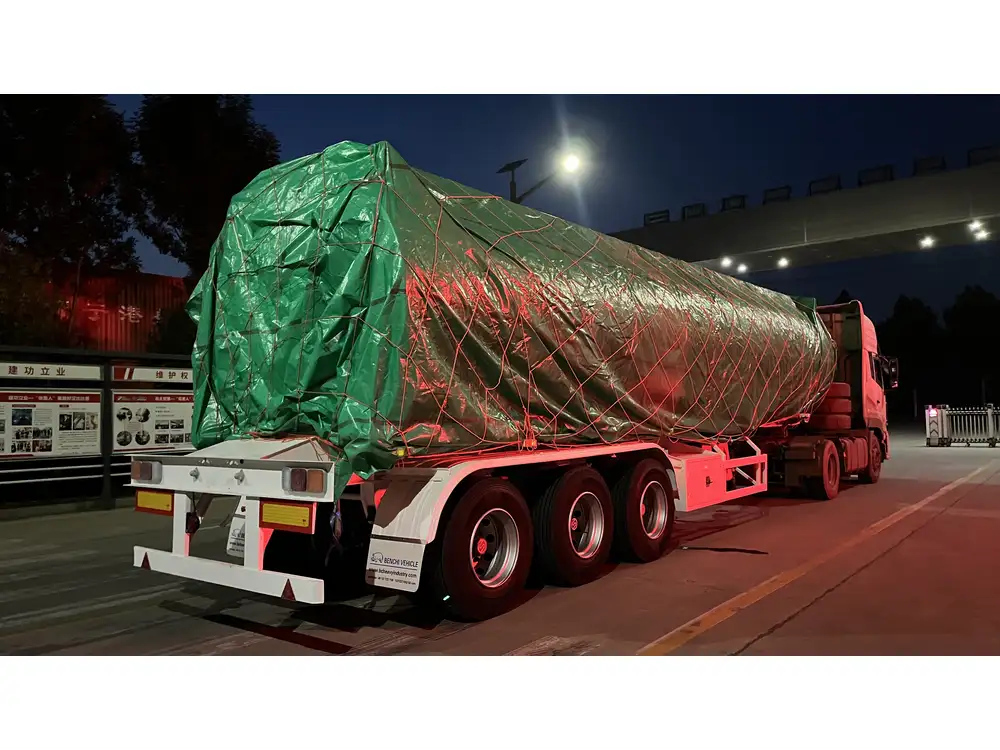In the ever-evolving landscape of logistics and transportation, container semi-trailers have emerged as indispensable tools. This article delves into the intricacies of container semi-trailers, offering insights that extend beyond basic knowledge. We explore their design, applications, advantages, and considerations for manufacturers and businesses seeking effective transport solutions.
Understanding Container Semi-Trailers
Definition and Overview
A container semi-trailer is a specialized type of trailer designed primarily for the transport of standardized shipping containers. These trailers connect to a heavy-duty tractor unit, allowing for efficient transport over roadways. Typically equipped with twist locks, which secure the shipping container in place, these trailers come in various sizes and configurations, accommodating a plethora of freight types.

Types of Container Semi-Trailers
Container semi-trailers can be classified into several categories based on their design and intended use:
| Type | Description | Common Uses |
|---|---|---|
| Standard Container Trailer | A conventional trailer with a flatbed and twist locks, designed for 20ft, 40ft, or 45ft containers. | General freight transport |
| Reefer Container Trailer | Insulated trailers equipped with refrigeration units for temperature-sensitive cargo. | Transport of perishable goods |
| Open-Top Container Trailer | Designed for oversized loads that cannot fit within a standard container. | Machinery, construction materials |
| Flat Rack Semi-Trailer | Features a flat surface without sides or a roof, versatile for various cargo types. | Large machinery and non-containerized cargo |
Key Design Features
Container semi-trailers boast an array of features that enhance their functionality and safety:
- Twist Locks: Mechanisms that secure shipping containers, preventing movement during transit.
- Flatbed Design: Facilitates loading and unloading of containers from the top or sides.
- Ramp Systems: Some models incorporate ramps, allowing for ease of loading heavy machinery.
- Suspension Systems: Advanced suspension technologies ensure smooth rides and cargo safety, influencing overall transport efficiency.
Applications of Container Semi-Trailers
The versatility of container semi-trailers lends them to a wide range of applications, making them a vital asset in the logistics sector:

1. Intermodal Transport
Container semi-trailers are crucial for intermodal transportation, allowing goods to be transferred seamlessly between ships, trains, and trucks. They capitalize on each mode of transport’s strengths, optimizing delivery times and costs.
2. International Shipping
For businesses engaged in global trade, container semi-trailers provide a means to efficiently move goods from ports to distribution centers. Their standardized dimensions facilitate international shipping protocols and customs processes.
3. Perishable Goods Logistics
Reefer container trailers specifically cater to the demands of perishable goods transport, maintaining temperature-controlled environments crucial for items such as pharmaceuticals, produce, and chemicals.

Advantages of Using Container Semi-Trailers
The adoption of container semi-trailers offers a multitude of benefits:
Increased Efficiency
Utilizing container semi-trailers streamlines the loading and unloading process, significantly reducing turnaround times. Their design allows for rapid exchange between transport modes, minimizing delays.
Enhanced Security
With their robust locking mechanisms and structural integrity, these trailers significantly enhance cargo security. This aspect is vital for high-value goods, where loss and damage can lead to substantial financial implications.

Versatile Applications
As noted earlier, container semi-trailers accommodate various shipping requirements and cargo types. Their adaptability makes them ideal for businesses with diverse logistics needs.
Cost-Effectiveness
Investing in container semi-trailers can lead to considerable savings over time. The ability to transport large volumes efficiently reduces per-unit shipping costs, allowing businesses to improve profitability.
Key Considerations for Manufacturers
When choosing container semi-trailers, manufacturers and logistics providers must consider multiple factors to ensure they meet operational needs effectively:

1. Load Capacity Requirements
Understanding the weight and dimensions of the cargo is crucial. Different semi-trailers offer varying load capacities, influencing the selection process. Proper evaluation ensures compliance with road weight regulations.
2. Type of Cargo
The nature of the cargo being transported determines the type of container semi-trailer required. Reefer trailers are indispensable for temperature-sensitive items, while open-top models suit oversized loads.
3. Compatibility with Existing Fleet
Ensuring compatibility with current tractor units is critical. Manufacturers should verify that the chose trailers can be seamlessly integrated into existing logistics operations.

4. Regulatory Compliance
Container semi-trailers must conform to local and international safety and transportation regulations. Engaging with regulatory bodies during the selection process can prevent future legal complications.
5. Maintenance and Durability
Assessing the durability of the trailer is paramount. Investing in robust, well-engineered semi-trailers minimizes maintenance costs and maximizes longevity, contributing to overall operational efficiency.
Innovations in Container Semi-Trailer Technology
The logistics sector continually innovates, and container semi-trailers are no exception. Several cutting-edge technologies are currently shaping this space:

Advanced Monitoring Systems
- Telematics: Real-time tracking of trailers enhances visibility, allowing logistics companies to monitor the location and health of their assets.
- Temperature Sensors: Reefer trailers equipped with temperature monitoring systems ensure compliance with safety standards for perishable goods.
Enhanced Safety Features
- Automatic Braking Systems: Advanced braking technologies reduce accident risks and enhance driver safety.
- Blind Spot Detection: New trailer designs integrate cameras and sensors to mitigate blind spots, improving overall road safety.
Eco-Friendly Designs
Sustainability is a growing concern in transportation. Innovations include:
- Lightweight Materials: The adoption of materials like advanced composites reduces vehicle weight, improving fuel efficiency.
- Hybrid and Electric Trailers: Emerging technologies focus on electrifying trailer designs, further reducing the industry’s carbon footprint.

The Future of Container Semi-Trailers
As logistics continues to transform, the role of container semi-trailers will expand. Key trends to watch include:
1. Automation and Robotics
With the rise of Autonomous Vehicles (AVs), container semi-trailers may see automation in loading and unloading processes, enhancing efficiency and reducing reliance on human labor.
2. Sustainable Practices
The transportation industry increasingly emphasizes sustainability. Manufacturers focusing on eco-friendly production methods and materials will likely lead the market.

3. Enhanced Connectivity
As the Internet of Things (IoT) expands its reach, container semi-trailers equipped with smart technology will facilitate real-time data sharing between various stakeholders in the logistics chain.
Conclusion
Container semi-trailers stand at the intersection of innovation and functionality in transportation logistics. Their ability to secure, transport, and facilitate cargo movement globally cements their importance in modern supply chains.
From understanding the types available to the advantages they offer, this comprehensive guide serves not only as an informative resource but also as a catalyst for manufacturers and businesses to optimize their transportation strategies. Investing in the right container semi-trailer can pave the way for operational efficiency, cost savings, and enhanced security, ultimately fostering growth in an increasingly competitive market.
For those in the logistics sector looking to enhance their fleet, understanding the myriad benefits and considerations of container semi-trailers from both operational and strategic perspectives is vital. Embrace the future of transport solutions with container semi-trailers, and ensure your business is poised to meet the demands of tomorrow’s supply chain challenges.



